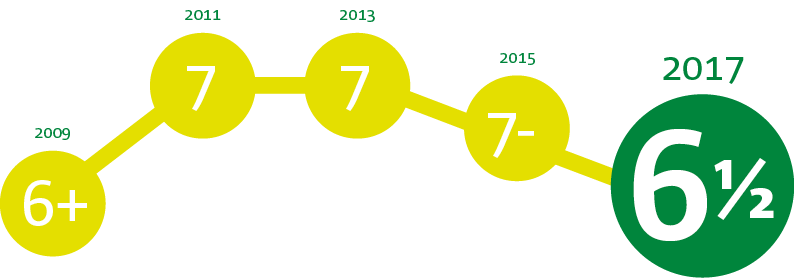Profiling, Cooperation and Internationality Enable a Productivity Leap
Research and Education on the Built Environment Must Be Increased
Real estate and construction industry research in Finland must be significantly increased, since the future success of the industry is based on fresh knowledge and strong professional expertise. Active international research, development and innovation activity which combines the strengths of various operators also benefit teaching. In order for the education in the field to continue attracting motivated and talented students in the future, the reputation and related appeal of the industry must be improved. The challenge posed by the changing skill requirements can be met with lifelong learning. Profiling and cooperation improve everybody’s chances of success.
High-quality education is a central part of the Finnish welfare society. The goal of Sipilä’s Government is to increase the population’s education and expertise level further so that in 2020 Finns will be the most skilled population in the world. In the target year, nearly 90% of the adult working-age population would have completed a secondary degree and 30% a university degree.
For the real estate and construction industry, the national education objectives bear significance, as the industry is the largest employer in Finland. Nearly half a million people participate in construction and the maintenance of the built environment either directly or indirectly. In addition, the industry is exceptionally international: for instance, in building construction and building management services, a fifth of the workforce, and as many as a third of the university students doing their master’s degree, are of foreign origin.
It has been estimated that in the fields of construction, building maintenance and environmental management, 7,500 new jobs will open annually by the year 2030 due to retirement and the creation of new jobs. Particularly the labor-intensive field of building management services is in dire need of more skilled workers.
The majority of the degree programs provided in the field of real estate and construction have been popular among young people, but the number of primary applicants has decreased in recent years. Also the great number of students whose studies have been prolonged or discontinued causes growing concern in some education sectors and at some education levels, even though the industry as a whole does not significantly differ from other industries.
Grade: In recent years, cuts have been made in public education, research, and development funding, due to which the industry’s own research company has also ceased to operate. Collaboration between educational institutes and the business community has developed in a positive way, as has the industry’s internationality. Companies’ own product, service, and concept development is now more active and goal-oriented than before. As a whole, the reduction in public research and education investments and companies’ limited interest in R&D&I activities and lifelong learning slightly reduce the grade.

